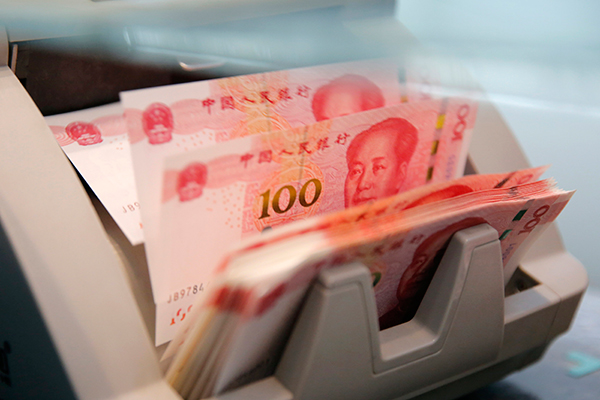Ministry to speed up issuance of special bonds


The Ministry of Finance is preparing to accelerate a special local government bond issuance by using part of the quota for 2020 to boost investment and bolster economic growth, senior officials said on Friday.
Although the exact amount and time for the new quota allocation has not yet been decided, experts said the measure will stabilize market expectations and strengthen investor confidence, helping to offset downside pressure in the economy in the fourth quarter of the year.
Following requirements of the State Council, the ministry will allocate part of next year's special bonds quota in advance and ensure that funds raised from these bonds are available at the start of next year in an effort to spur effective investment to shore up weak areas and expand domestic demand, Vice Finance Minister Xu Hongcai said at a news conference on Friday.
The amount of special bonds to be issued will favor projects with "complete formalities and adequate preparations," Xu said, adding priority should be given to those projects that are ready to start construction this winter or in the spring to boost investment.
Some key targeted projects will include transportation infrastructure such as railway, urban parking lots, energy projects such as urban and rural power grids, natural gas pipeline networks and gas storage facilities, and ecological environmental protection projects like agriculture, forestry, water conservancy, urban sewage and garbage treatment, the senior official explained.
Zhou Wenyuan, managing director and chief researcher with Guotai Junan Securities, said the new quota will likely be allocated in the fourth quarter to ensure the funds can be injected into prepared projects as early as possible.
In the first eight months, local governments issued 2.90 trillion yuan ($407 billion) in new bonds, accounting for 94 percent of the annual quota of this year, data from the Ministry of Finance showed.
By the end of August, about 62 percent of the funds raised by newly-issued local government bonds were used to stabilize investment or injected into projects to make up for deficiencies in economic structural reforms, said Xu.
The new bonds' average issuance interest rate was 3.41 percent in the January-to-August period, 44 basis points lower than the same period in 2018, the official added.
"Local governments still have contingent liabilities, or hidden debt," said Wang Kebing, director general of the ministry's budget department. "We will firmly curb the incremental part of the debt, as well as lower the existing debt level to prevent debt risks."
The regional governments will make the final decision on the lists of projects, and the Ministry of Finance and the National Development and Reform Commission will examine and approve the special bond projects. Financial institutions should cooperate on the financing work, which is a mechanism to control debt growth and prevent potential financial risks, the official stated.
Wang also said that the total outstanding local government debt reached 21.41 trillion yuan by the end of August, lower than the government's debt ceiling of 24.08 trillion yuan for this year.
The outstanding government debt to GDP ratio was 37.1 percent by the end of 2018, below the 60 percent line set by the European Union and also lower than the debt level in major market economies and emerging market countries, Wang said.



































